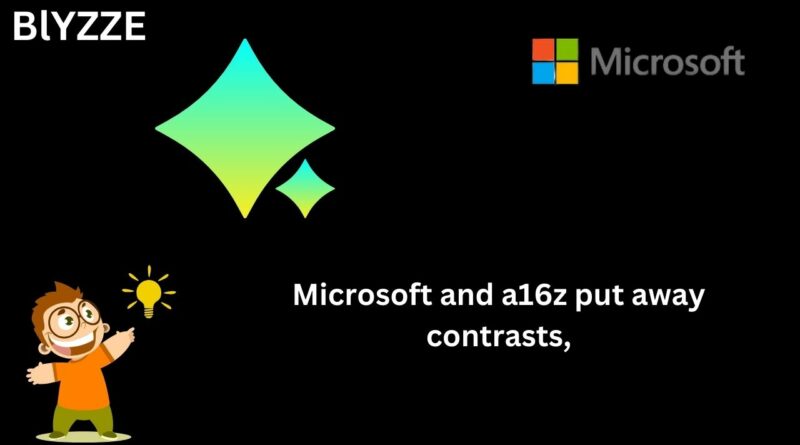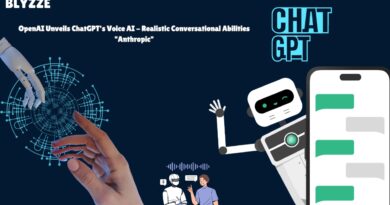Microsoft and a16z put away contrasts, hold hands in supplication against man-made intelligence guideline
Two of the greatest powers in two profoundly entwined tech biological systems — huge occupants and new companies — have had some time off from counting their cash to mutually argue that the public authority quit it from contemplating guidelines that could influence their monetary advantages, or as they like to call it, development.
“Our two organizations probably won’t settle on everything, except this isn’t about our disparities,” composes this gathering of immeasurably divergent viewpoints and interests: Establishing a16z accomplices Marc Andreessen and Ben Horowitz, and Microsoft President Satya Nadella and President/Boss Lawful Official Brad Smith. A genuinely multifaceted gathering, addressing both enormous business and huge cash.
Be that as it may, it’s the little men they’re evidently paying special attention to. That is, every one of the organizations that would have been impacted by the most recent endeavor at administrative excess: SB 1047.
Envision being charged for ill-advised open model divulgence! a16z general accomplice Anjney Midha considered it a “backward duty” on new businesses and “barefaced administrative catch” by the Enormous Tech organizations that could, in contrast to Midha and his ruined partners, manage the cost of the legal counselors important to consent.
Then again, actually was all disinformation proclaimed by Andreessen Horowitz and the other well-to-do interests that could really have been impacted as benefactors of billion-dollar endeavors. Truth be told, little models and new businesses would have been just inconsequentially impacted on the grounds that the proposed regulation explicitly safeguarded them.
It’s odd that the actual sort of deliberate pattern for “Little Tech” that Horowitz and Andreessen regularly champion was contorted and limited by the campaigning effort they and others went against SB 1047. (The designer of that bill, California State Representative Scott Wiener, discussed this entire thing as of late at Upset.)
That bill had its concerns, however its resistance incomprehensibly exaggerated the expense of consistence and neglected to seriously uphold claims that it would chill or weight new businesses.
It’s essential for the laid out playbook that Enormous Tech — which Andreessen and Horowitz are firmly lined up with, in spite of their acting — runs at the state level where it can win (similarly as with SB 1047), in the mean time requesting government arrangements that it realizes won’t ever come, or which will have no teeth because of hardliner quarreling and legislative clumsiness on specialized issues.
This recently posted joint assertion about “strategy opportunity” is the last option a piece of the play: Subsequent to obliterating SB 1047, they can say they just did as such with the end goal of supporting a government strategy. Regardless of that we are as yet looking out for the government protection regulation that tech organizations have pushed for 10 years while battling state bills.
Also, what approaches do they uphold? “An assortment of dependable market-based approaches.” all in all: hands off our cash, Uncle Sam.
It would be ideal for guidelines to have “a science and principles based approach that perceives administrative structures that emphasis on the application and abuse of innovation,” and ought to “center around the gamble of troublemakers abusing simulated intelligence,” compose the strong VCs and Microsoft executives. What is implied by this is we shouldn’t have proactive guideline however rather responsive disciplines when unregulated items are utilized by lawbreakers for criminal purposes.
This approach turned out perfect for that entire FTX circumstance, so I can see the reason why they embrace it.
“Guideline ought to be carried out provided that its advantages offset its expenses,” they likewise compose. It would take huge number of words to unload every one of the ways that this thought, communicated in this specific situation, is entertaining. In any case, essentially, they are recommending that the fox be acquired on the henhouse arranging advisory group.
Controllers ought to “grant engineers and new companies the adaptability to pick which computer based intelligence models to utilize any place they are building arrangements and not slant the battleground to advantage any one stage,” they altogether add. The ramifications is that there is some kind of plan to expect consent to utilize some model. Since that is not the situation, this is a misrepresentation.
Here is a major one that I need to simply statement completely:
The option to learn: intellectual property regulation is intended to advance the advancement of science and helpful expressions by stretching out securities to distributers and creators to urge them to carry new works and information to the general population, however not to the detriment of the public’s all in all correct to gain from these works. Intellectual property regulation ought not be co-picked to suggest that machines ought to be kept from utilizing information — the groundwork of man-made intelligence — to learn similarly as individuals. Information and unprotected realities, whether or not contained in safeguarded topic, ought to stay free and open.
Honestly, the express statement here is that product, show to billion-dollar companies, has the “option” to get to any information since it ought to have the option to gain from it “similarly as individuals.”
Most importantly, no. These frameworks dislike individuals; they produce information that impersonates human result in their preparation information. They are perplexing measurable projection programming with a characteristic language interface. They have no more “right” to any report or reality than Succeed.
Second, this thought that “realities” — by which they imply “protected innovation” — are the main thing these frameworks are keen on and that some sort of truth storing secrecy is attempting to forestall them is a designed account we have seen previously. Perplexity has summoned the “realities have a place with everybody” contention in its public reaction to being sued for supposed efficient substance robbery, and its Chief Aravind Srinivas rehashed the false notion to me in front of an audience at Disturb, as though Perplexity is being sued over realizing random data like the separation from the Earth to the moon.
While this isn’t the put to set out on a full bookkeeping of this specific misrepresentation, let me basically bring up that while realities are for sure free specialists, how they are made — say, through unique detailing and logical exploration — includes genuine expenses. For that reason the copyright and patent frameworks exist: not to keep protected innovation from being shared and utilized generally, however to boost its creation by guaranteeing that they can be appointed genuine worth.
Intellectual property regulation is not exactly flawless and is most likely manhandled however much it is utilized. Yet, it isn’t being “co-selected to infer that machines ought to be kept from utilizing information.” It is being applied to guarantee that agitators don’t dodge the frameworks of significant worth that we have worked around protected innovation.
That is plainly the inquire: let the frameworks we own and run and benefit from uninhibitedly utilize the important result of others without remuneration. In all honesty, that part is “similarly as people,” since people configuration, direct, and convey these frameworks, and those people would rather not pay for anything they don’t need to and don’t believe guidelines should change that.
There are a lot of different proposals in this little strategy record, which are presumably given more significant subtlety in the variants they’ve sent straightforwardly to legislators and controllers through official campaigning channels.
A few thoughts are without a doubt decent, if likewise a little self-serving: “store computerized proficiency programs that assist individuals with understanding how to utilize simulated intelligence devices to make and access data.” Great! Obviously, the creators are vigorously put resources into those instruments. Support “Open Information Lodge — pools of available information that would be overseen to the public’s advantage.” Amazing! “Look at its acquirement practices to empower more new companies to offer innovation to the public authority.” Great!
In any case, these more broad, positive proposals are the sort of thing you see consistently from industry: put resources into public assets and accelerate government processes. These tasteful however unimportant ideas are only a vehicle for the more significant ones that I framed previously.
Ben Horowitz, Brad Smith, Marc Andreessen, and Satya Nadella believe the public authority should ease off directing this rewarding new turn of events, let industry conclude which guidelines merit the compromise, and invalidate copyright such that pretty much goes about as a general exoneration for unlawful or exploitative practices that many suspect empowered the quick ascent of simulated intelligence. Those are the strategies that make a difference to them, regardless of whether children get computerized education.
thanks for ready my news..



